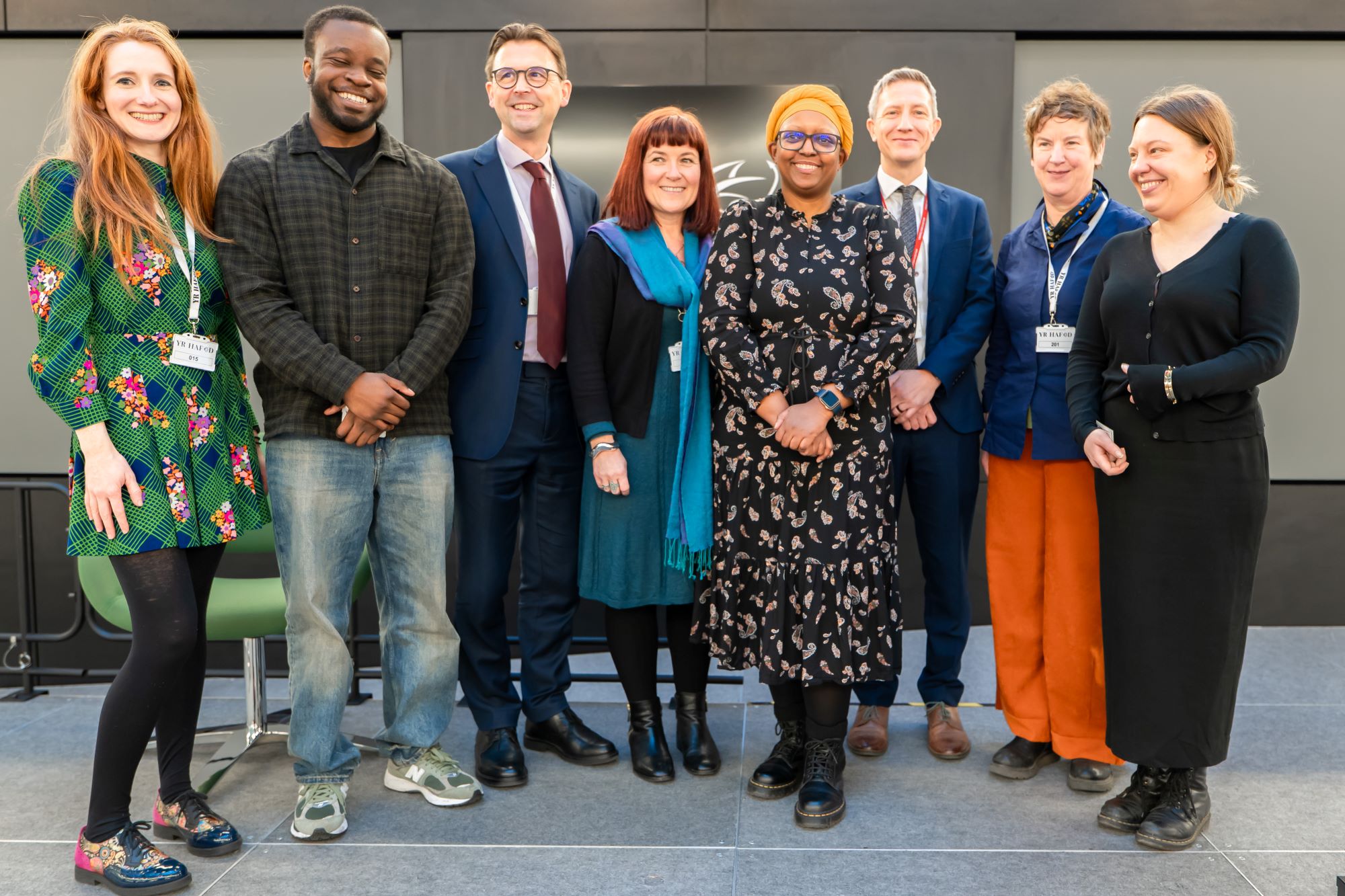At a recent Welsh Government lunch and learn event about UNESCO, Anna Nsubuga, the current UK Ambassador and Permanent Delegate to UNESCO was introduced by Swansea University’s UNESCO Chair, Professor Matthew Davies. Anna’s presentation highlighted the strong links between UNESCO and Wales, and the ways that they can continue to work together on some of the world’s most pressing challenges. One such challenge is the just energy transition. Through UNESCO, Wales has greater opportunities to share its expertise and learn from others to ensure the global transition to renewable energy is sustainable and inclusive.
What is UNESCO?
UNESCO is the United Nations Educational, Scientific and Cultural Organisation. Established in London in 1945, its founders wanted to ensure that the horrors of World War II did not happen again. Through the promotion of education, science, culture, and communication, UNESCO aims to create solutions to some of the world’s greatest challenges and build lasting peace and equality.
What is a UNESCO Chair?
A UNESCO Chair is “a team within a higher education or research institution that partners with UNESCO on a project to advance knowledge and practice in an area of common priority.” Launched in 1992, the programme currently includes around 1000 UNESCO Chairs across 125 countries. This network of universities around the world assists UNESCO’s work in addressing urgent challenges and contributes to the development of their societies through education, science, and culture. Focus areas for the Chairs range from ‘Education towards Racial Equality,’ to ‘Cultural Property Protection and Peace’ and ‘Artificial Intelligence.’
Swansea University’s UNESCO Chair in Sustainable Energy Technologies is dedicated to the development of low-cost, efficient and sustainable solar technologies. In collaboration with colleagues at Swansea University and partners across Africa, South and Central America, India and Malaysia, Professor Matthew Davies is co-ordinating a network to develop next-generation printable photovoltaic technologies for low-and-middle income countries.
UNESCO and Wales
During her presentation, Anna discussed the relationship between Wales and UNESCO and what they can offer each other. She pointed out that Wales was pivotal in the birth of UNESCO. Gwilym Davies, a Welsh man and the first President of the United Nations Association Wales, was instrumental to the founding of UNESCO.
To this day, Wales has a strong sense of connection with the wider world and an awareness of its global responsibility. The Well-being of Future Generations Act, which requires public bodies in Wales to think about the long-term impact of their decisions, has inspired organisations and governments around the world. When it was passed in 2015, the United Nations said ‘what Wales is doing today, the world will do tomorrow.’ In September 2024 the United Nations signed the ‘Declaration on Future Generations’ to protect the well-being and needs of future generations.
Anna also shared the many opportunities for Wales through UNESCO. Its focus on community cohesion means Wales could use UNESCO to take forward initiatives in tourism, jobs creation, and culture. UNESCO can also bring together world experts with broader networks and enable Wales to be part of a global discussion.
Speaking to the Welsh Government at the event, Anna Nsubuga said:
“I think Wales has so much to offer UNESCO. There is a great amount of innovative policymaking and creative thinking about how to bring people together to solve shared challenges. I think the Well-being of Future Generations Act gives a really rich evidence base of what works and some best practice examples that we can share with the rest of UNESCO, the rest of the member states, but also bringing some of their lessons learned, bringing those back here to Wales to see how you can learn from those experiences and further enrich what you’ve already achieved so far.”
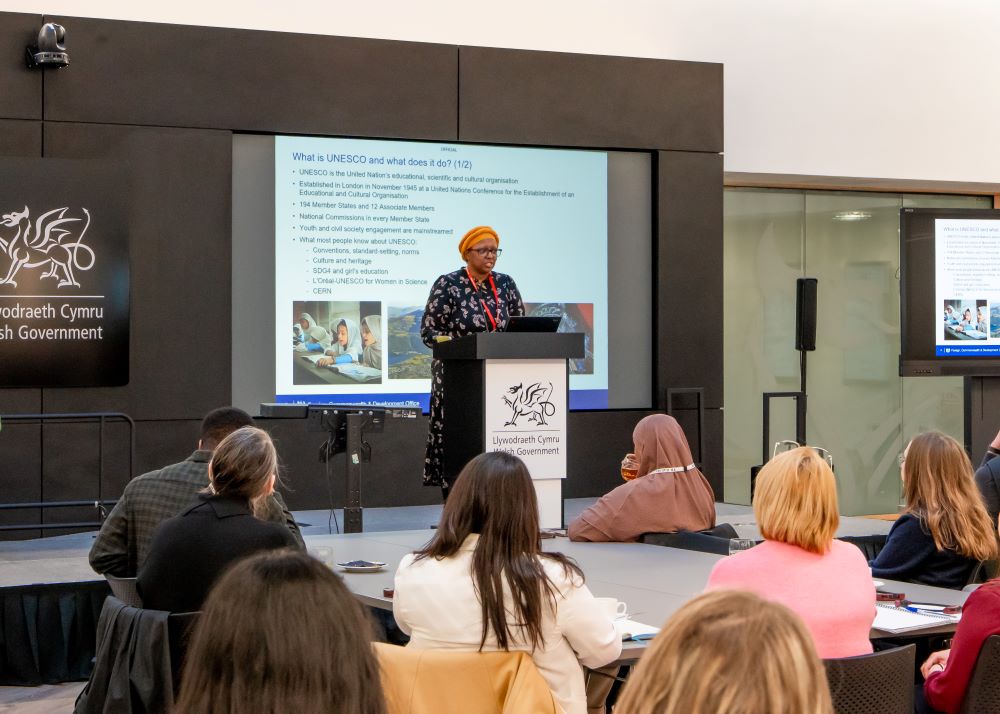
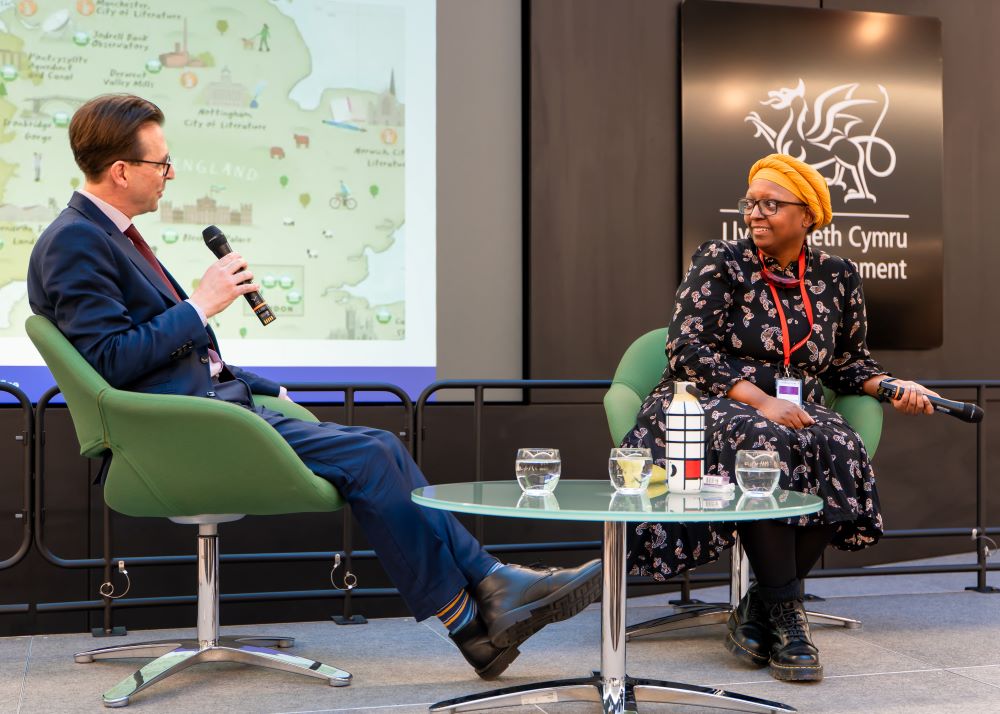
Right: James Bridge, Chief Executive and Secretary-General of the UK National Commission for UNESCO, speaking with Anna Nsubuga during the Q&A session.
How can UNESCO and Wales work towards a just energy transition?
One of the world’s most urgent shared challenges is achieving a just energy transition. With its emphasis on education, science, culture, and international cooperation, UNESCO is well-positioned to support these efforts. And through UNESCO, Wales can access international networks to both contribute to finding solutions and learn from other countries.
A key area of expertise at UNESCO is science for a sustainable future. UNESCO acknowledges the crucial role science, and international scientific cooperation, plays in finding solutions to the world’s environmental challenges.
UNESCO also approaches the energy challenge from a cultural and ecological perspective. Recognising the importance of renewable energy alongside the challenges it brings for the conservation and management of World Heritage properties, the UNESCO World Heritage Centre is developing guidance to avoid and mitigate the potential negative impacts of renewable energy projects on these sites.
Wales is supporting the just energy transition through the aforementioned UNESCO Chair in Sustainable Energy Technologies at Swansea. This Chair aims to equip local communities in Africa with the knowledge and tools to manufacture next-generation solar panels, and transform waste into wealth through the creation of a circular economy. Its principles of collaboration and co-creation, circular economy, and education and entrepreneurship align closely with those of the TEA@SUNRISE and REACH-PSM projects, also both led by Swansea University.
The Swansea University Chair works closely with the UNESCO Chair on Climate Change Resilience and Sustainability at Strathmore University, held by Professor Izael Pereira Da Silva. This Chair is aiming to unite academia, government, and the private sector within an integrated system of research, training, information and documentation on climate change. One of their initiatives is a mentorship programme to empower the next generation of women energy leaders.
How can you get involved?
If you’re interested in staying up to date with the development of the UNESCO Chair in Sustainable Energy Technologies and any opportunities that arise, then follow the LinkedIn page. If you’d like to work with the Chair, you can contact the LinkedIn page or email sunrise@swansea.ac.uk.
Finally, the TEA@SUNRISE project is gathering a team of people from across the globe to help identify opportunities for next-generation solar to support an equitable and just energy transition. Fill out this online form if you’d like to sign up to the TEA@SUNRSE network.
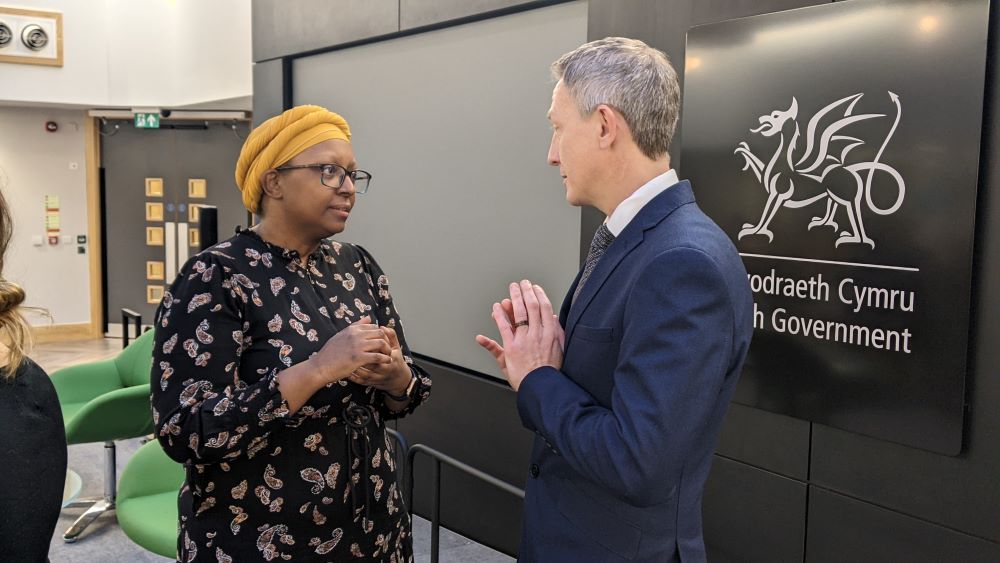
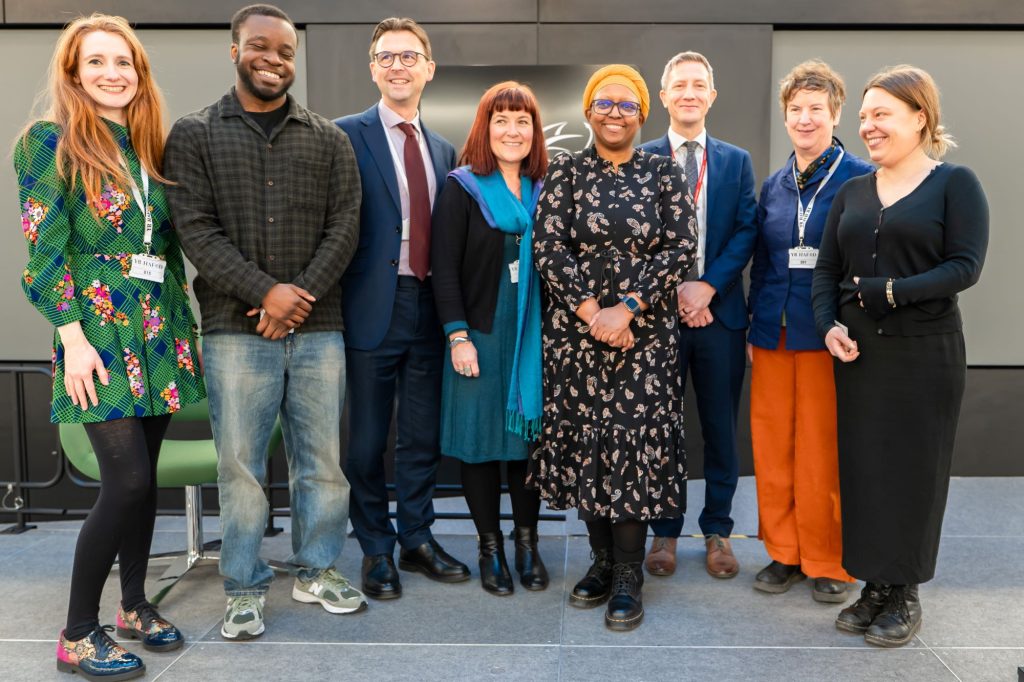
Right: Anna Nsubuga, James Bridge, and Matthew Davies with the Welsh Government team who organised the event.

